Ok, this is not the most ‘Christmassy’ of posts, but we think that bees make great blog fodder at any time of the year!
We’re lucky enough to have a good number of folk producing honey in and around the Forest of Dean and Wye Valley – as we saw in the post on Sarah Gates’ Mitcheldean Soap company.
We all know why bees are so important from an environmental viewpoint, so we’re chuffed to bits about the following positive story!
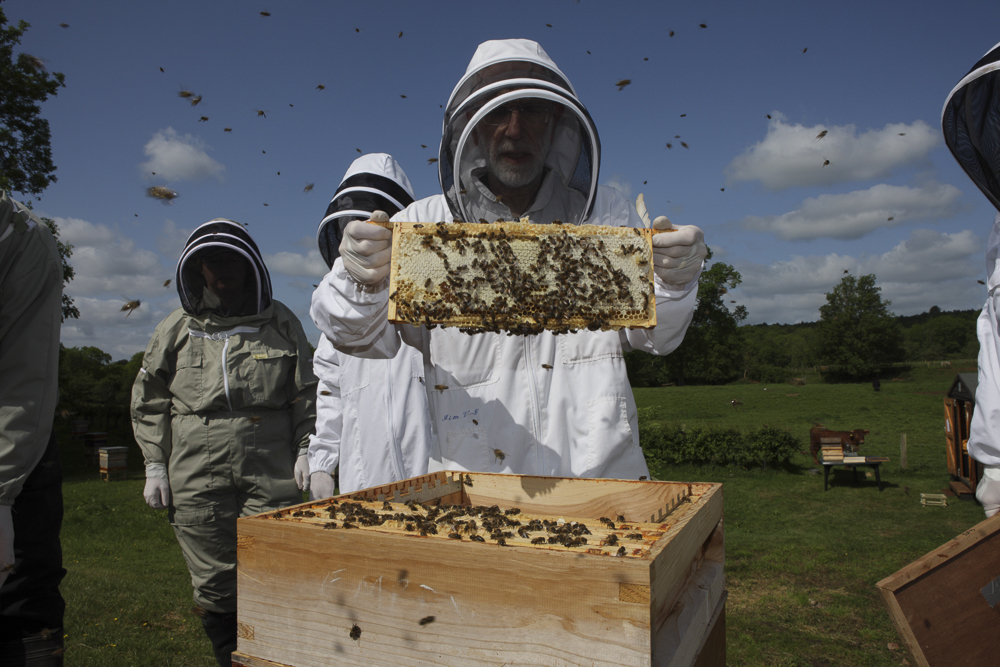
Introducing Wye Garden Bee Project
Back in 2009, a small gardening club in the Forest of Dean, of modest membership (but lofty aspirations), took action to rectify the worrying decline of the UK honey bee population. Now, we’ve seen a lot of media coverage about the crucial role that bees play in maintaining our ecosystem over the past 10 years. Bees (as well as other insects) are essentially responsible for pollinating plants – including the staple crops on which we depend.
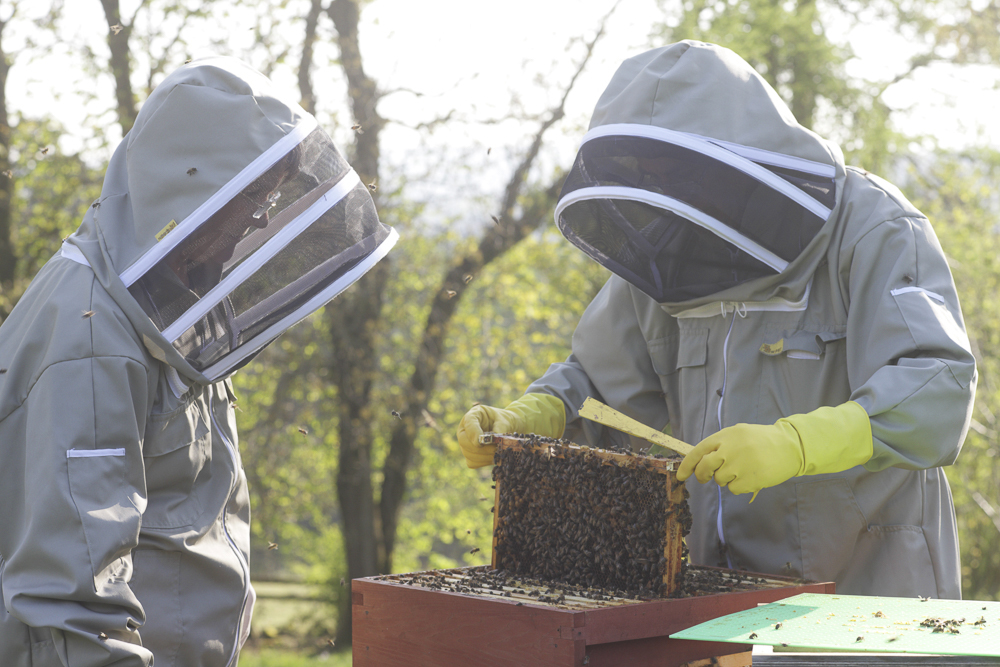
Colony Collapse and the Verroa mite
There have been many theories about why the bees are in decline, but we now know that a type of mite called Verroa is responsible. This was first identified in the UK back in 1992 and once it enters a hive, the entire hive can die, which is known by beekeepers as ‘colony collapse’. Amazingly, this didn’t really become common knowledge until 2009. However, it was clear was that urgent action was needed.
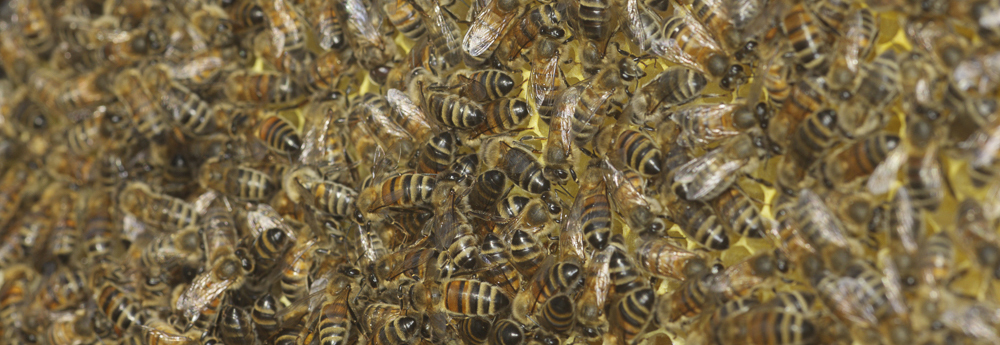
The honey bee: a crucial cog in the machine of life on Earth
Albert Einstein famously said “If the bee disappeared off the surface of the globe, then man would only have four years of life left”. He was, of course, referring to the role of pollination in the production of the global food crops. Bees and other pollinators represent crucial ‘cog’ in this complex machine. So, a further decline in bee populations on a global scale could potentially spell an end to a vast proportion of food production. Meanwhile, locally, the shortage of bees means less pollinators (and flowers) in our gardens and local fields.
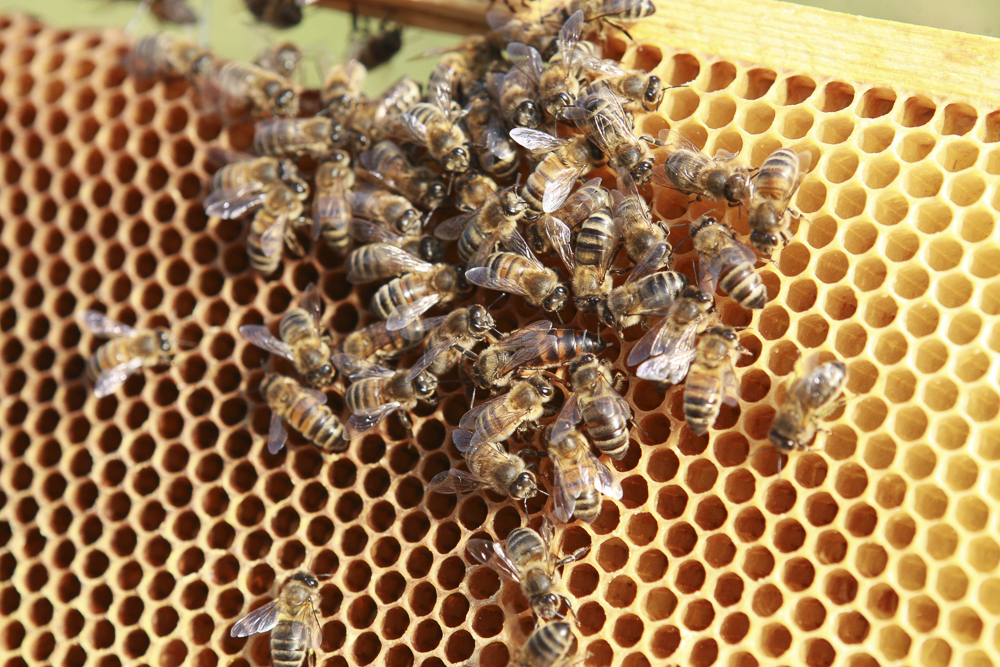
Promoting beekeeping on a local scale
So, with this in mind, the ‘Brockweir, Hewelsfield & St Briavels Garden Society’ set out to ensure that local beekeepers became a very real and permanent feature in these local parishes. Under the guiding hand of a chap named Alan Robertson, and with the blessing of the clubs committee, the first grant of £300 was conceived, planned and awarded to a couple who were new to beekeeping.
This was a major step back in 2009, and a major innovation in the local area. This made marketing their idea somewhat challenging. Members found that the much bigger projects which were running at the time weren’t interested in a little garden society from deepest darkest Gloucestershire. In fact, the ‘Brockweir, Hewelsfield & St Briavels Garden Society’ was several years ahead of these larger organisations!

£300 grants help new beekeepers on their way
And so, for the past five years, an annual £300 grant has helped spur someone on to begin the fascinating journey towards becoming a beekeeper. Although there have been some who gave up along the way, it’s resulted in parishes that are now well blessed with an abundance of dedicated beekeepers producing that fantastic wonder food – honey!
Wye Garden Bee Project grants now available for 2015!
The good news is that they’re doing it all over again (despite the lack of business sponsorship) for 2015! So, if you are interested, contact them for an application pack which includes all the terms and full details. The applications close on 14th December 2014 and interviews for successful applicants will take place early in the New Year (2015).
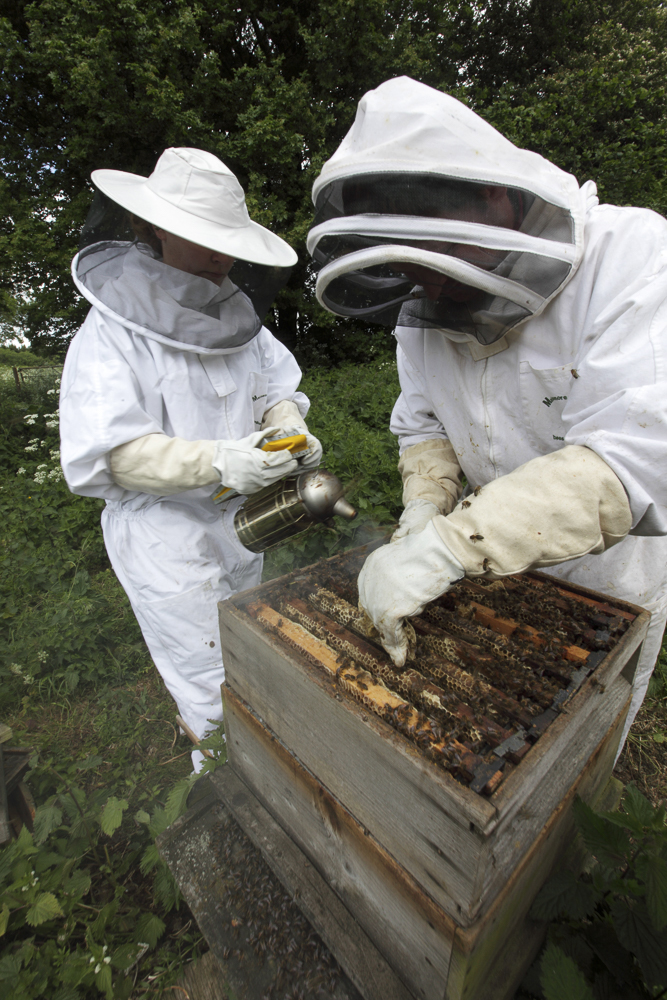
Support the Wye Garden Bee Project
The Wye Garden Bee Project also has a Facebook page supported by none other than TV gardener, Sarah Raven. She’s a real national champion of pollinating insects and gardening in general. (Internet pic of Sarah or one from her Facebook page). If you’re on Facebook please support the project. Hit “Like” and spread the love! www.facebook.com/WyeGardenBeeProject
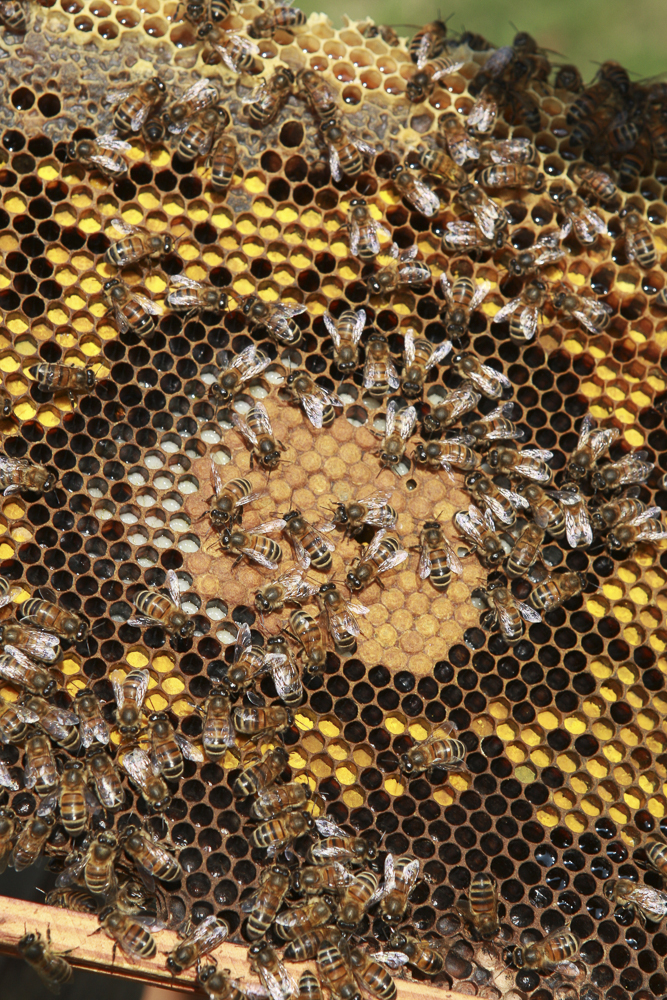
The garden society is a great example of those local institutions which exist for the good of the community. It also has a packed annual programme of speakers and talks, garden trips, a great plant sale and lots of help and advice for gardeners. Visit the Wye Garden for more information at www.wyegarden.com